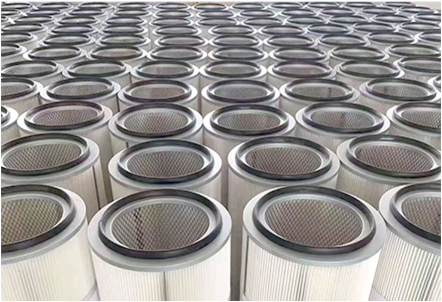 Tel:
+8618931101301
Tel:
+8618931101301
Aug . 12, 2024 18:30 Back to list
Understanding the Importance of Cartridge Oil Filters for Engine Performance and Maintenance
The Importance and Functionality of Cartridge Oil Filters
When it comes to maintaining the health and longevity of an engine, one component that plays a crucial role is the oil filter, specifically the cartridge oil filter. This filter is an essential part of the engine's lubrication system, designed to remove impurities and contaminants from the engine oil, ensuring that your vehicle operates efficiently and reliably.
What is a Cartridge Oil Filter?
A cartridge oil filter is a type of oil filter that contains a replaceable element housed within a sturdy, cylindrical case. Unlike traditional spin-on filters, the cartridge filter system separates the filter element from the outer casing. This design allows for easier maintenance, as only the filter medium needs to be replaced during an oil change, reducing waste and promoting eco-friendliness.
Working Mechanism
The primary function of the cartridge oil filter is to clean the oil circulating in the engine. As the engine runs, its moving parts generate metal shavings, dirt, and other contaminants. These particles can cause wear and tear on engine components if not filtered out. The oil pump pushes oil through the filter, where it passes through the filter media. The media captures impurities while allowing clean oil to flow back into the engine.
Cartridge oil filters are designed with multiple layers of filtration media, which can include synthetic fibers or cellulose, to efficiently trap various sizes of contaminants. Additionally, many cartridge filters come equipped with integrated bypass valves, which allow oil to bypass the filter in case of clogging. This ensures that the engine always receives oil, even in adverse conditions.
cartridge oil filter

Advantages of Cartridge Oil Filters
1. Environmental Benefits One of the primary advantages of using cartridge oil filters is their environmental impact. Since only the filter element needs to be disposed of, less waste is generated compared to the entire spin-on filter system. Many manufacturers have made strides in using biodegradable materials for filter media, further reducing environmental footprints.
2. Cost-Effectiveness Although the initial cost of a cartridge oil filter can sometimes be higher than traditional filters, over time, the cost savings accumulate. Frequent oil changes necessitate less frequent purchases of filter casings, leading to lower costs in the long run.
3. Ease of Maintenance Changing a cartridge oil filter is often simpler than dealing with a spin-on filter. The cartridge design allows for a cleaner removal process, minimizing the mess associated with oil changes. Additionally, many modern vehicles are designed with easily accessible filter locations, enhancing convenience for both professional mechanics and DIY enthusiasts.
4. Improved Filtration The multilayered design of cartridge oil filters usually allows for better filtration capabilities, ensuring that contaminants are effectively trapped. This better filtration not only protects engine components but also contributes to improved engine performance and fuel efficiency.
Conclusion
In summary, the cartridge oil filter is an important component of modern engines, playing a vital role in maintaining engine oil cleanliness and overall vehicle performance. With its environmental benefits, cost-effectiveness, ease of maintenance, and enhanced filtration capabilities, it represents a significant advancement in oil filtration technology. As the automotive industry continues to evolve, the cartridge oil filter will remain a fundamental part of ensuring that engines operate smoothly and efficiently for years to come. Proper maintenance and timely replacement of oil filters can lead to major improvements in engine life, making it an important aspect for vehicle owners to prioritize.
-
Working principle of high-efficiency dust filter elementNewsJun.26,2025
-
The truth about washable filters: Does repeated use really not affect efficiency?NewsJun.25,2025
-
Effect of humidity on the performance of activated carbon filter elementsNewsJun.24,2025
-
Material selection considerations for dust removal filter elements under high temperature conditionsNewsJun.23,2025
-
Cold knowledge of air filters: Why are some designed to be pleated?NewsJun.16,2025
-
Factory direct supply! High-precision air filter element wholesale and customizationNewsJun.12,2025

 Email:
Email:





